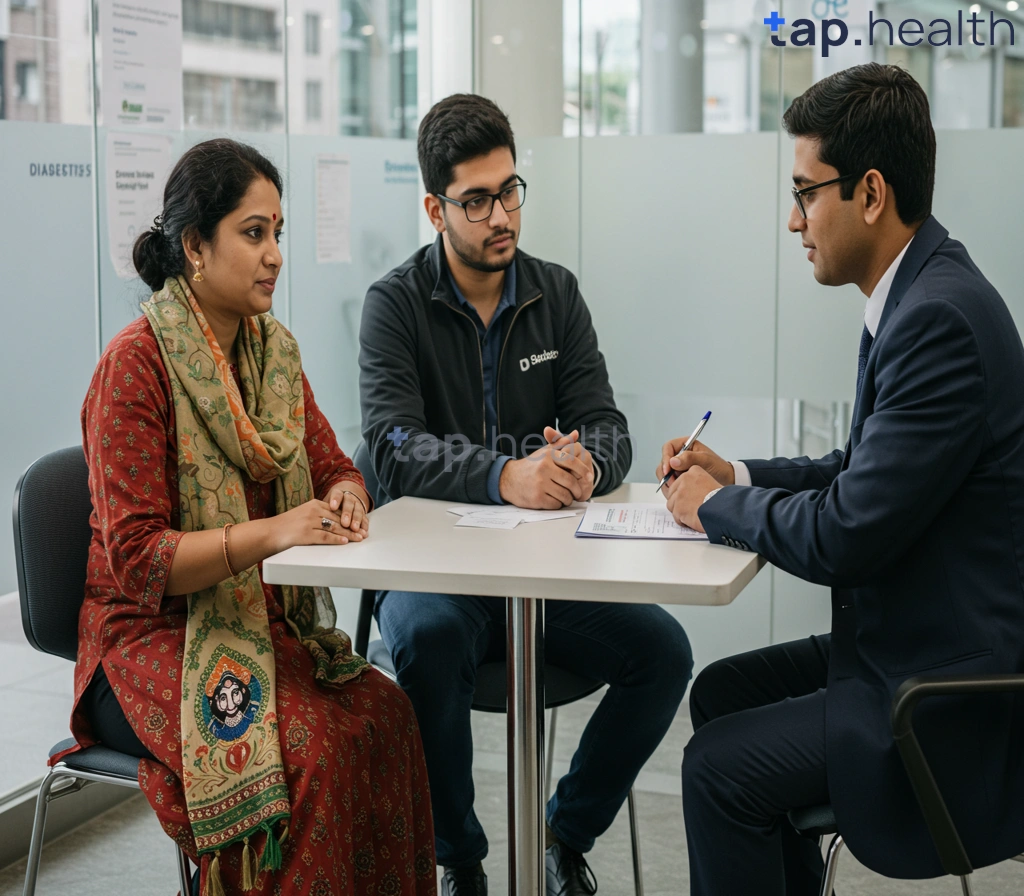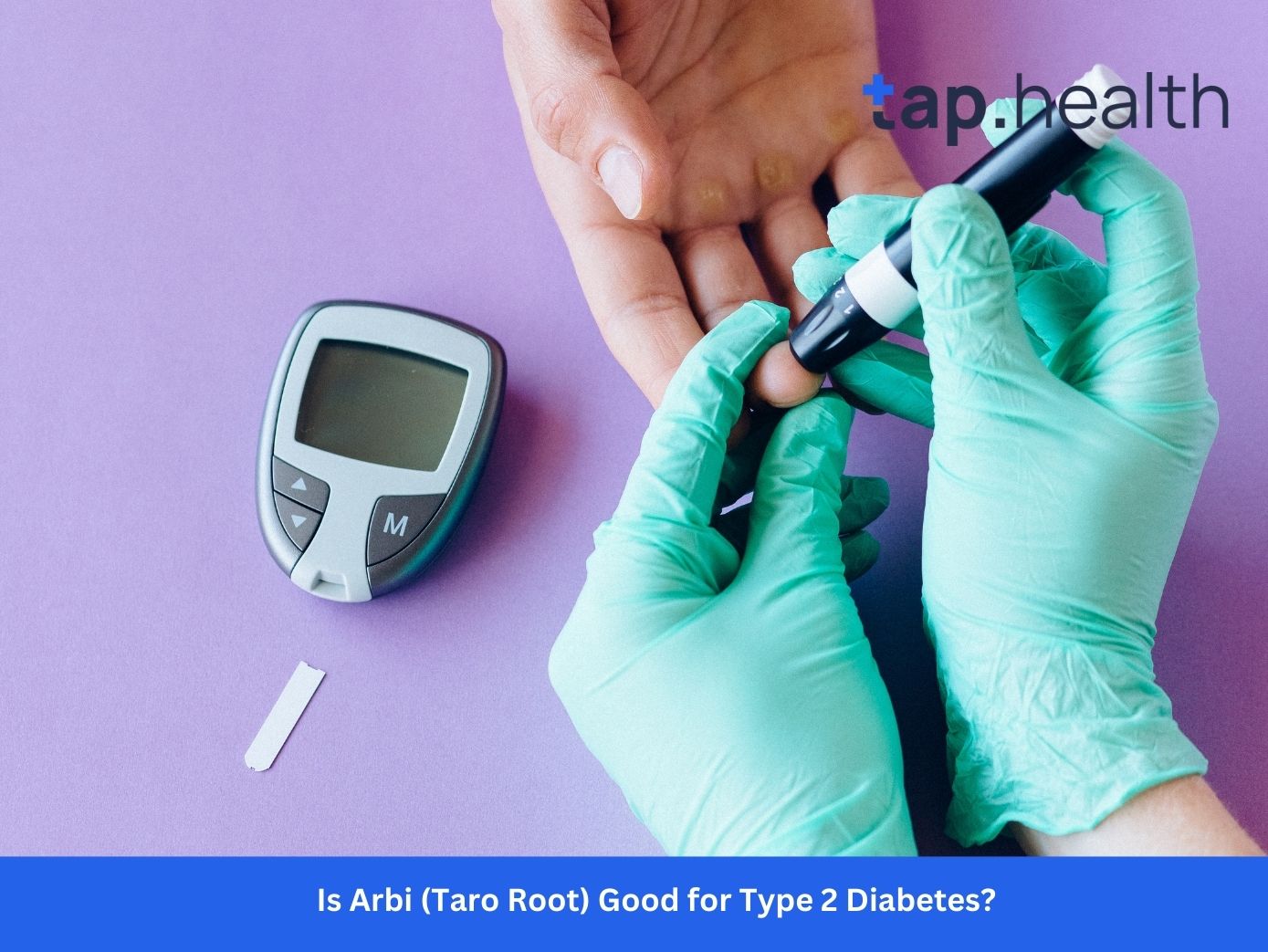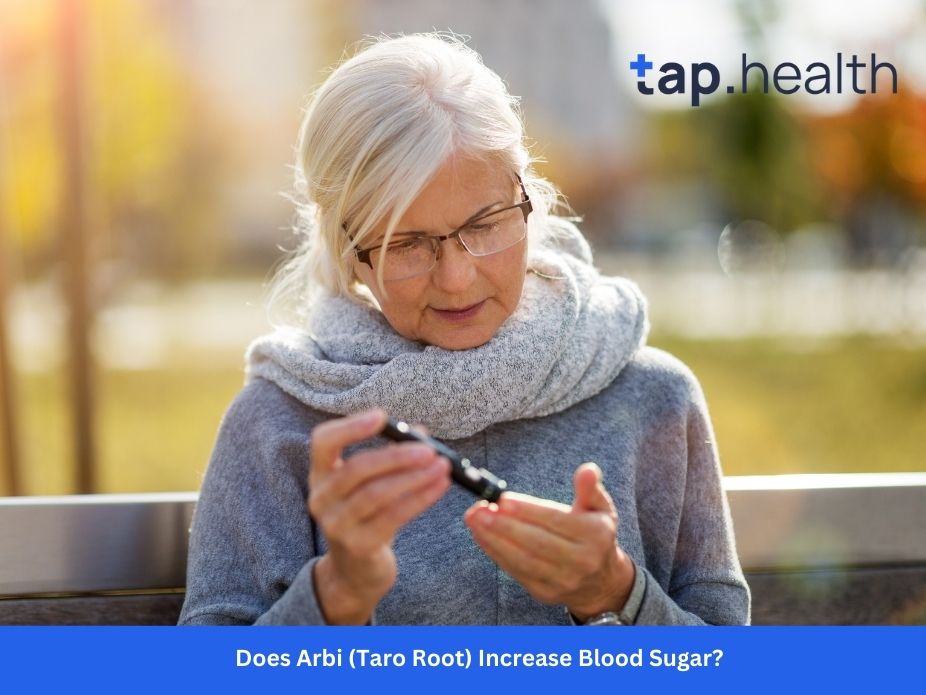Table of Contents
- Cushing Syndrome and Diabetes: A Complete Guide to Management
- Understanding the Link Between Cushing’s and Diabetes
- Effective Strategies for Managing Diabetes with Cushing Syndrome
- Navigating Daily Life with Both Cushing’s and Diabetes
- Treatment Plans: Diabetes Management in Cushing Syndrome Patients
- Frequently Asked Questions
- References
Living with Cushing syndrome presents unique challenges, and when it’s coupled with diabetes, managing your health becomes even more complex. This isn’t just about controlling blood sugar; it’s about navigating a delicate balance of hormones and medications. That’s why we’ve created this comprehensive guide: Managing Diabetes with Cushing Syndrome: A Comprehensive Guide. Here, we’ll explore effective strategies for managing both conditions simultaneously, offering practical advice and empowering you to take control of your well-being. Get ready to learn how to thrive, not just survive, with a clearer understanding of your individual needs.
Cushing Syndrome and Diabetes: A Complete Guide to Management
Diabetes and Cushing syndrome are a challenging combination, significantly impacting the lives of many, particularly within the 20-64 age group, representing 61% of those with diabetes, according to the International Diabetes Federation. In Indian and tropical countries, where both conditions may have unique presentations and access to healthcare can vary, effective management is crucial. Understanding this interplay is vital for better health outcomes.
Understanding the Connection
Cushing syndrome, characterized by prolonged exposure to high cortisol levels, frequently leads to insulin resistance and subsequently, type 2 diabetes. This happens because excess cortisol interferes with the body’s ability to utilize insulin effectively. In tropical climates, factors like dietary habits and lifestyle further complicate this relationship. Weight gain, a common symptom of both Cushing syndrome and poorly managed diabetes, becomes a significant concern in these regions. The challenges of managing diabetes only increase as we age, as highlighted in Managing Diabetes as You Age: Challenges and Solutions.
Effective Management Strategies
Managing both conditions requires a multi-faceted approach. Strict blood glucose monitoring is essential, along with careful dietary management. This includes a balanced diet low in processed foods and refined sugars, crucial in Indian and tropical contexts where dietary habits may contribute to both conditions. Regular exercise, appropriate medication (often including insulin or oral hypoglycemics), and regular check-ups with specialists are paramount.
Seeking Support in Tropical Regions
Access to specialized endocrinologists and diabetes care can vary across different regions. For individuals in Indian and tropical countries, proactively seeking out qualified healthcare professionals and support groups is critical. Early diagnosis and consistent management are key to mitigating the long-term complications associated with both Cushing syndrome and diabetes. Don’t hesitate to seek help; effective management leads to a better quality of life. For parents of children with Type 1 diabetes, Tips for Parents of Kids with Type 1 Diabetes: Complete Guide offers valuable insights and support.
Understanding the Link Between Cushing’s and Diabetes
The Unseen Connection
Cushing’s syndrome, a hormonal disorder, and diabetes share a significant, often overlooked, connection. The excess cortisol produced in Cushing’s disrupts the body’s ability to regulate blood sugar, leading to insulin resistance and, ultimately, type 2 diabetes. This is particularly crucial in regions like India and other tropical countries where access to healthcare may be limited, and awareness of such complex interplay between diseases is low. The staggering statistic that 50% of diabetes cases worldwide are undiagnosed, as highlighted by the International Diabetes Federation, underscores the urgent need for increased awareness and early detection. This is even more pertinent considering the prevalence of both Cushing’s and diabetes in these regions. The relationship between these conditions is complex, and understanding the connection between diabetes and obesity, as discussed in our article, Understanding the Link Between Diabetes and Obesity, can offer further insight.
Increased Risk Factors in Tropical Climates
Several factors prevalent in Indian and tropical countries exacerbate this risk. Lifestyle changes, including increased consumption of processed foods and sedentary lifestyles, contribute to insulin resistance. Furthermore, genetic predispositions, coupled with environmental factors, may increase the susceptibility to both Cushing’s and diabetes in these populations. Early identification is crucial, as managing both conditions concurrently requires a multifaceted approach involving lifestyle modifications, medication, and regular monitoring. It’s also important to consider the impact of fatty liver disease; The Link Between Diabetes and Fatty Liver explores this additional complication.
Taking Control: Actionable Steps
Recognizing symptoms of both Cushing’s (weight gain, fatigue, high blood pressure) and diabetes (increased thirst, frequent urination, blurred vision) is the first step. Regular check-ups with a physician, especially for individuals with risk factors, are essential. In India and other tropical countries, proactive measures, such as adopting a healthy diet rich in fresh fruits and vegetables, engaging in regular physical activity, and maintaining a healthy weight, can significantly reduce the risk and improve management of both conditions. Don’t delay seeking medical advice; early detection and management are key to a healthier life.
Effective Strategies for Managing Diabetes with Cushing Syndrome
Managing diabetes, especially when complicated by Cushing syndrome, presents unique challenges. The good news is that proactive management significantly improves outcomes. Up to 80% of Type 2 diabetes cases can be delayed or prevented through lifestyle changes, as highlighted by research. This emphasizes the crucial role of lifestyle interventions in managing both conditions. For more comprehensive tips on diabetes management, see our guide on 10 Proven Tips to Effectively Manage Diabetes.
Dietary Adjustments
In tropical climates like those prevalent in India, dietary modifications are particularly important. Focus on a balanced diet rich in fruits, vegetables, and whole grains, while limiting refined carbohydrates and sugary drinks. Portion control is crucial for managing blood glucose levels effectively. Consult a registered dietitian to create a personalized meal plan suitable for your region and specific needs. Consider incorporating traditional Indian spices known for their anti-inflammatory properties.
Physical Activity
Regular physical activity is vital in managing both Cushing syndrome and diabetes. Aim for at least 150 minutes of moderate-intensity aerobic exercise per week. Incorporating activities suitable for the Indian climate, such as early morning or evening walks, yoga, or swimming, can be highly beneficial. Remember to consult your doctor before starting any new exercise regimen.
Medication Management
Close monitoring and meticulous management of prescribed medications are essential. This includes adhering strictly to the dosage and schedule recommended by your endocrinologist and diabetologist. Regular blood glucose monitoring and periodic check-ups are necessary to adjust treatment as needed. Open communication with your healthcare team ensures optimal management.
Stress Management
Stress can exacerbate both Cushing syndrome and diabetes. Practice stress-reducing techniques such as meditation, deep breathing exercises, or yoga, readily accessible and culturally relevant in many Indian communities. Prioritize sleep hygiene and ensure adequate rest to support overall health. Learning more about effective diabetes management strategies, as detailed in our article 10 Proven Tips for Effective Diabetes Management, can significantly reduce stress related to the condition.
Remember: This information is for general knowledge and does not substitute professional medical advice. Always consult with your healthcare providers for personalized guidance on managing your specific condition. Seeking expert advice tailored to the Indian context will optimize your treatment plan and improve your quality of life.
Navigating Daily Life with Both Cushing’s and Diabetes
Managing diabetes is challenging enough, but when you also have Cushing’s syndrome, it becomes significantly more complex. The hormonal imbalances associated with Cushing’s can significantly worsen blood sugar control, leading to higher HbA1c levels. In fact, studies show that HbA1c levels above 9% are reported in over 30% of diabetes patients, a statistic that’s likely even higher in individuals with both conditions. This highlights the critical need for careful management and close monitoring.
Understanding the Challenges
The interplay between Cushing’s and diabetes creates unique hurdles. Increased insulin resistance, a hallmark of Cushing’s, makes it harder for your body to effectively use insulin, leading to consistently high blood glucose levels. Weight gain, another common symptom of Cushing’s, further exacerbates insulin resistance. Moreover, the stress associated with managing both conditions can also impact blood sugar control. In hot and humid tropical climates prevalent in many Indian and other tropical countries, this can be further complicated by increased dehydration and sweating, affecting glucose metabolism. Managing cholesterol is also crucial, and you might find our guide on How to Manage Cholesterol Levels with Diabetes? helpful.
Practical Strategies for Effective Management
Effective management requires a multi-pronged approach. This includes strict adherence to a prescribed medication regime, regular monitoring of blood glucose levels, and adopting a healthy lifestyle. This lifestyle should include a balanced diet tailored to your specific needs, regular exercise, and stress management techniques such as yoga or meditation – practices deeply rooted in Indian culture and readily accessible across many tropical regions. Regular consultations with both an endocrinologist and a diabetologist are crucial for personalized care and adjustment of treatment plans as needed.
Seeking Support in Your Region
Remember, you are not alone. Connecting with support groups specific to diabetes and Cushing’s syndrome, or even those focused on endocrinology within your community, can provide invaluable emotional support and practical advice tailored to the challenges specific to your region. Proactive management and seeking local support are key to navigating daily life with both Cushing’s and diabetes. Planning travel? Check out our tips on Traveling with Diabetes: Essential Tips for a Safe & Healthy Journey for advice on managing your condition while on the go.
Treatment Plans: Diabetes Management in Cushing Syndrome Patients
Managing diabetes in patients with Cushing syndrome requires a careful, holistic approach. Both conditions share overlapping risk factors, such as weight gain, high blood pressure, and insulin resistance, which make management more complex. In India and other tropical countries, limited access to specialized care can further complicate treatment, making awareness and structured management essential.
The goal is to control blood sugar, manage blood pressure, and improve overall quality of life. For people with diabetes, keeping blood pressure below 140/90 mmHg is generally advised. Some guidelines recommend below 130/80 mmHg for even better outcomes.
Dietary Modifications and Lifestyle Changes
A balanced diet is the cornerstone of diabetes management in Cushing syndrome patients.
-
Avoid refined carbs & sugary foods – They quickly raise blood sugar.
-
Choose high-fiber foods – Whole grains, fresh vegetables, and low-glycemic fruits slow down glucose absorption.
-
Include lean protein – Lentils, fish, eggs, or chicken help stabilize blood sugar.
-
Limit sodium intake – Helps reduce blood pressure, which is often elevated in Cushing syndrome.
Regular physical activity is equally important. Even simple daily walks can:
-
Improve insulin sensitivity
-
Support weight management
-
Lower blood pressure
Weight management is a critical part of treatment since excess body fat worsens both Cushing syndrome and diabetes.
Medication Management
Medications play a crucial role in controlling both conditions.
-
Blood sugar control: Depending on severity, patients may need oral hypoglycemic agents (like metformin) or insulin therapy.
-
Blood pressure control: ACE inhibitors or angiotensin receptor blockers (ARBs) are commonly prescribed.
-
Close monitoring: Blood sugar should be checked regularly to avoid dangerous fluctuations, especially when steroids or Cushing-related medications are involved.
Frequent endocrinologist consultations are essential. Adjustments in treatment should be based on both blood sugar patterns and hormone levels.
Regional Considerations in India & Tropical Countries
Patients in tropical regions face additional challenges:
-
Access to specialized care: Rural or underserved areas may have fewer endocrinologists. Building a long-term relationship with a trusted healthcare provider ensures continuity of care.
-
Medication supply: Ensuring regular access to prescribed medicines is critical for consistent control.
-
Climate factors: High heat and humidity can impact hydration, insulin absorption, and overall blood sugar control.
-
Stay hydrated
-
Avoid strenuous outdoor activity during peak heat hours
-
Monitor blood sugar more frequently in hot climates
-
Final Thoughts
Managing diabetes with Cushing syndrome requires a comprehensive plan that blends diet, lifestyle changes, and medication. Regular follow-ups, personalized dietary adjustments, and awareness of regional challenges are key to improving outcomes.
By working closely with healthcare professionals, staying consistent with treatment, and making smart lifestyle choices, patients can better manage both conditions and maintain a healthier quality of life.
Frequently Asked Questions
Q1. What is the connection between Cushing syndrome and type 2 diabetes?
Cushing syndrome, due to excess cortisol, causes insulin resistance, increasing the risk of developing type 2 diabetes. This is especially true for adults aged 20-64.
Q2. How can I manage diabetes effectively if I also have Cushing syndrome?
Effective management involves a multi-pronged approach: strict blood glucose monitoring, a balanced diet low in processed foods and refined sugars, regular exercise, and appropriate medication (insulin or oral hypoglycemics prescribed by your doctor).
Q3. What lifestyle changes can help manage my diabetes and Cushing syndrome?
Proactive lifestyle changes are vital. These include regular physical activity, stress management techniques, and a focus on a healthy, balanced diet.
Q4. Why is early diagnosis and specialist care important for managing both conditions?
Early diagnosis is crucial for mitigating long-term complications. Consistent management by specialists is particularly important, especially in areas with limited healthcare access, to ensure optimal treatment and improve quality of life.
Q5. Are there additional challenges in managing these conditions in certain regions?
Yes, in tropical regions, lifestyle factors and potentially limited access to healthcare can exacerbate the challenges of managing both Cushing syndrome and type 2 diabetes.
References
- A Practical Guide to Integrated Type 2 Diabetes Care: https://www.hse.ie/eng/services/list/2/primarycare/east-coast-diabetes-service/management-of-type-2-diabetes/diabetes-and-pregnancy/icgp-guide-to-integrated-type-2.pdf
- Diabetes Mellitus: Understanding the Disease, Its Diagnosis, and Management Strategies in Present Scenario: https://www.ajol.info/index.php/ajbr/article/view/283152/266731



